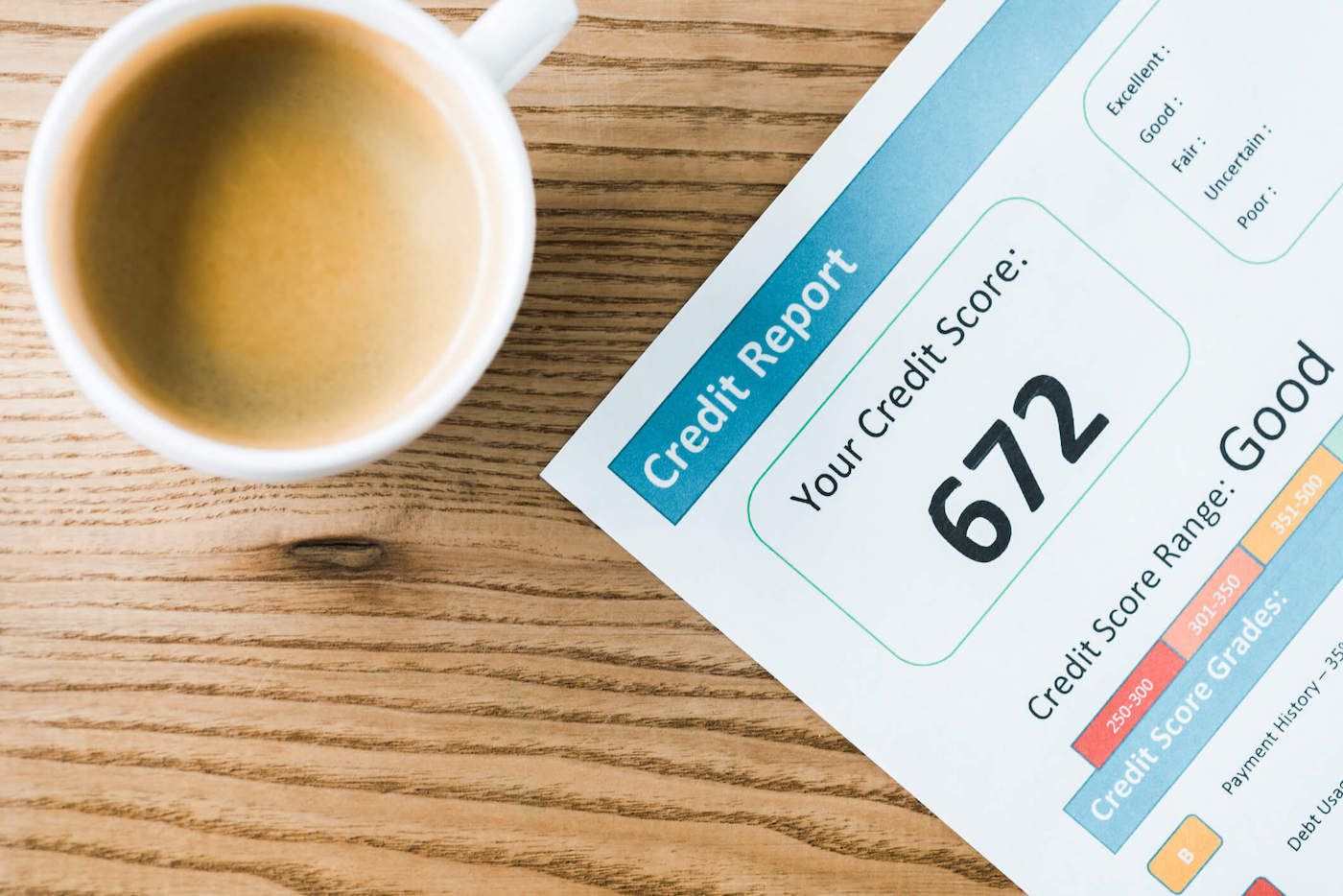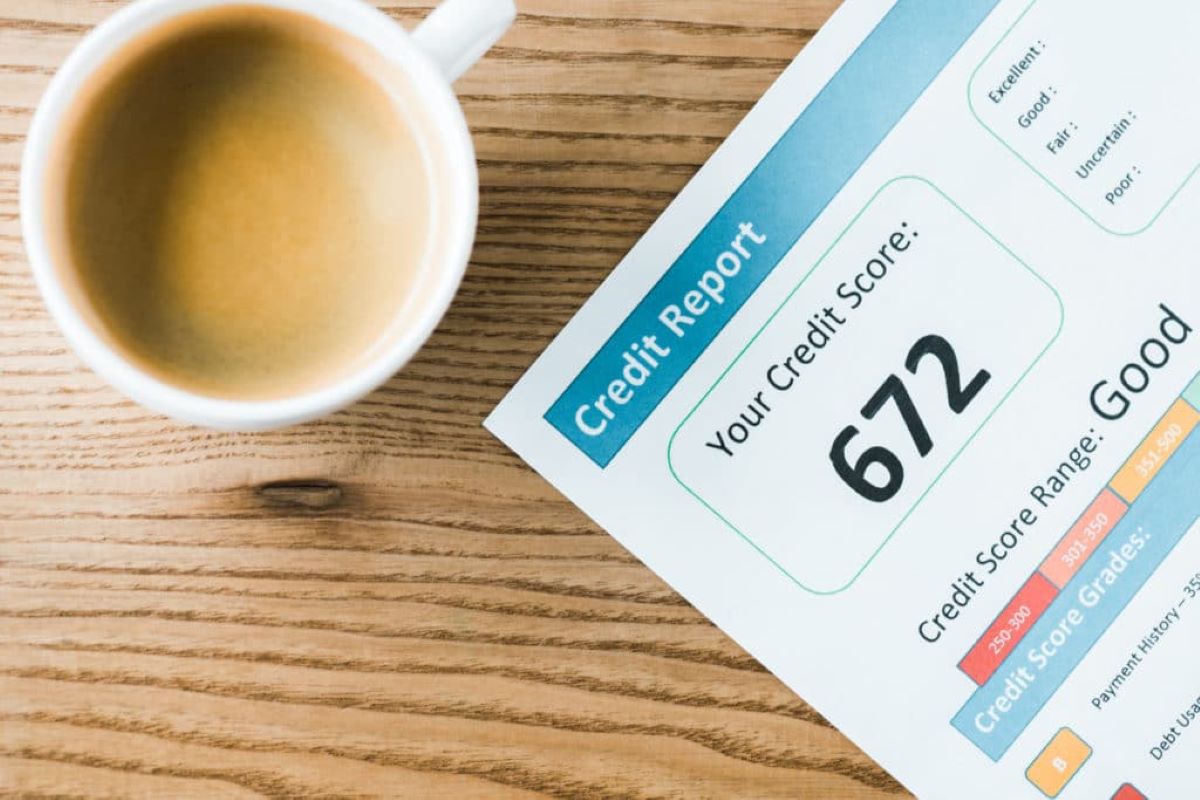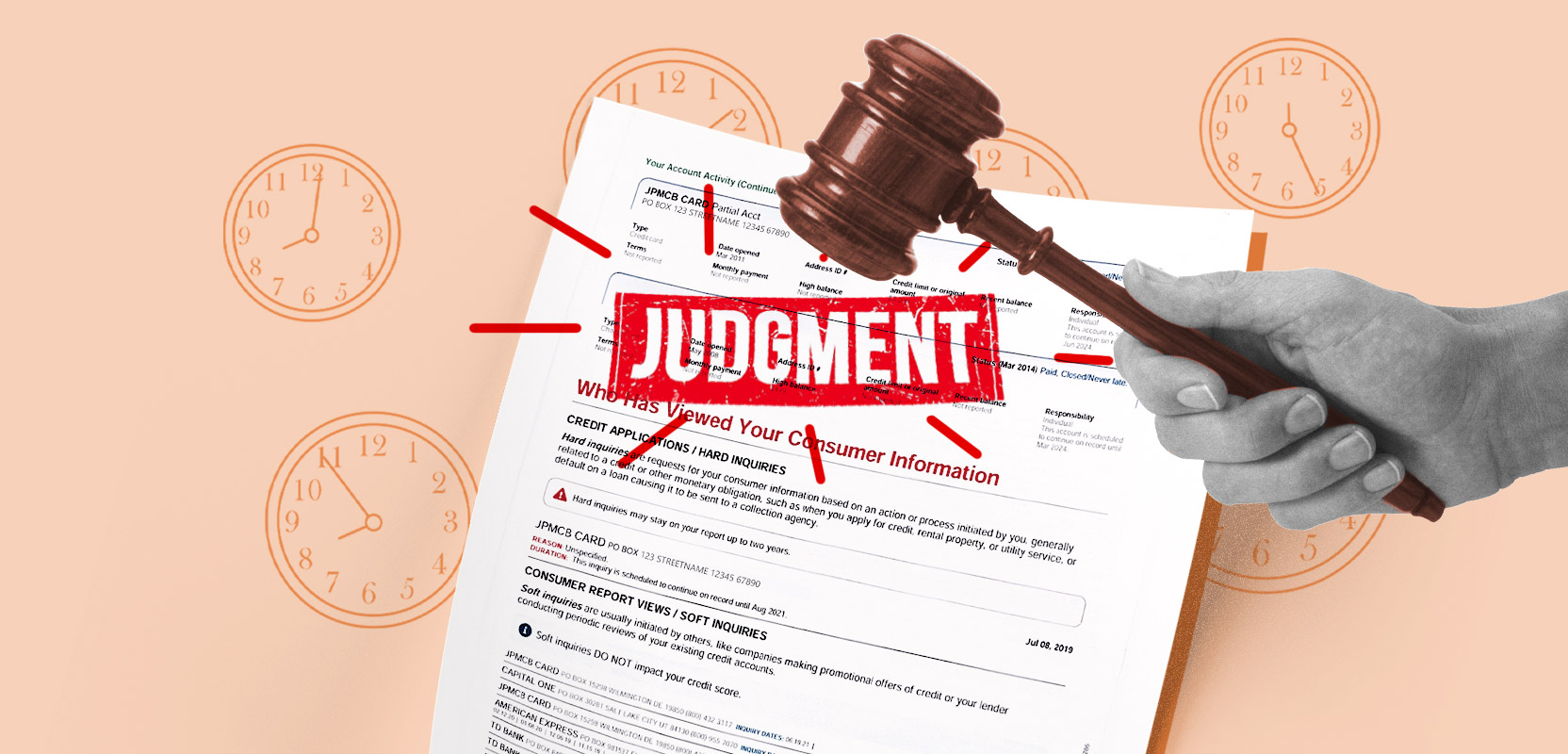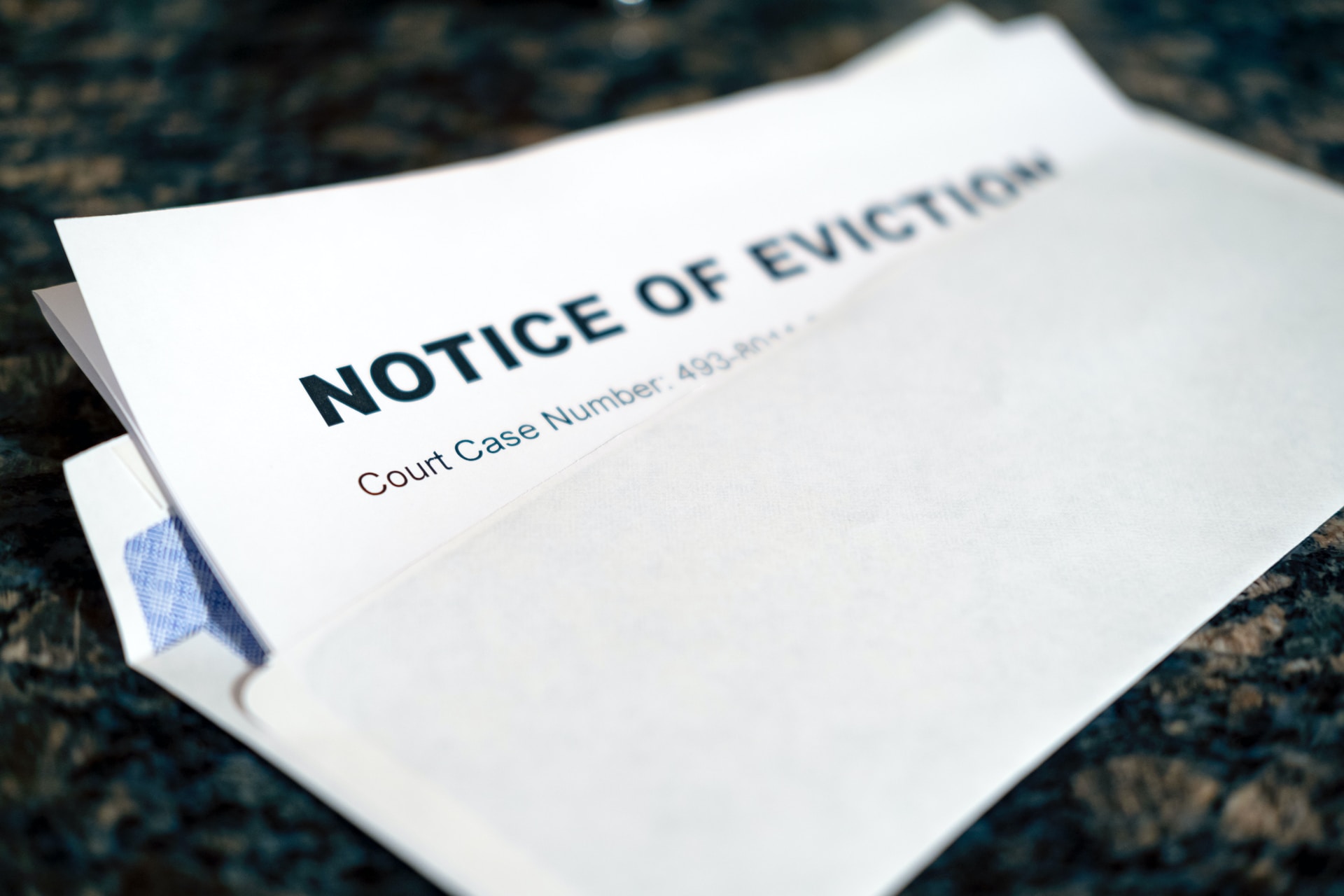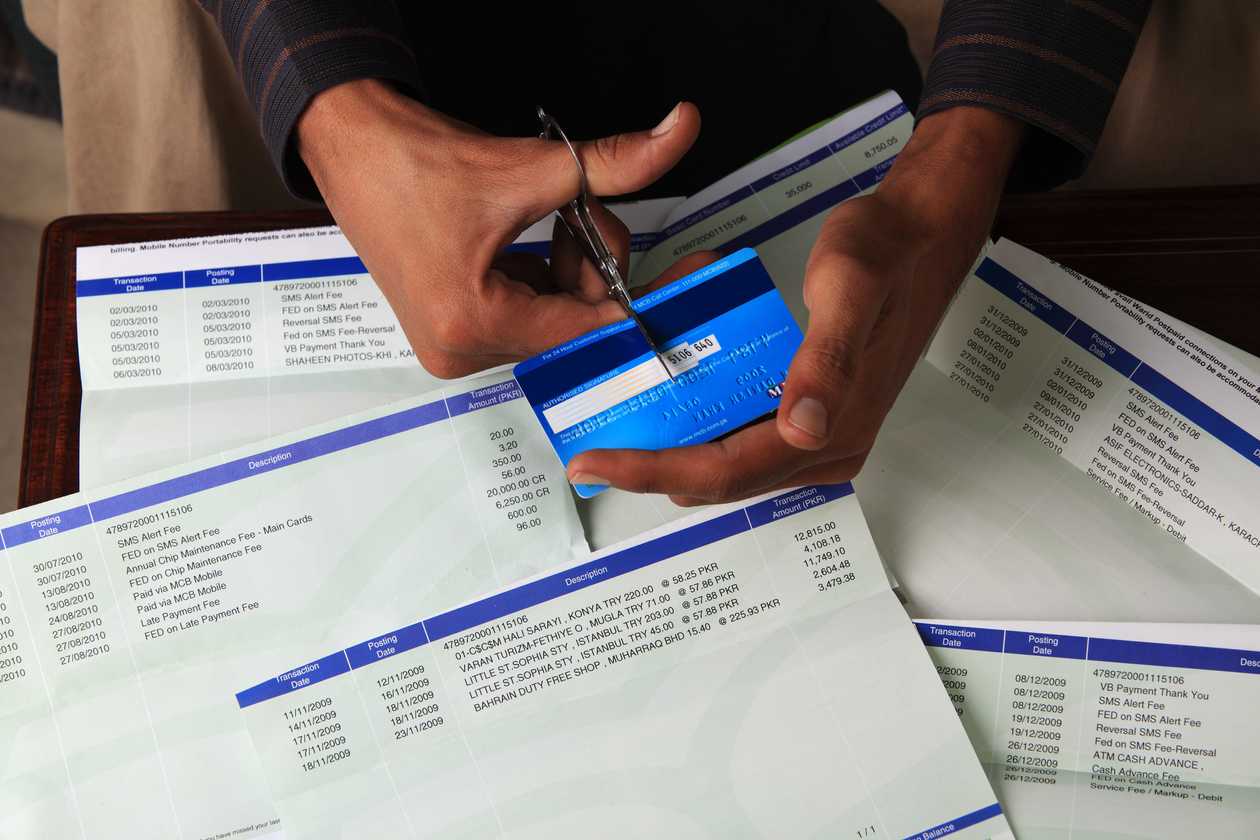Home>Finance>How Long Does A Debt Settlement Stay On Your Credit Report
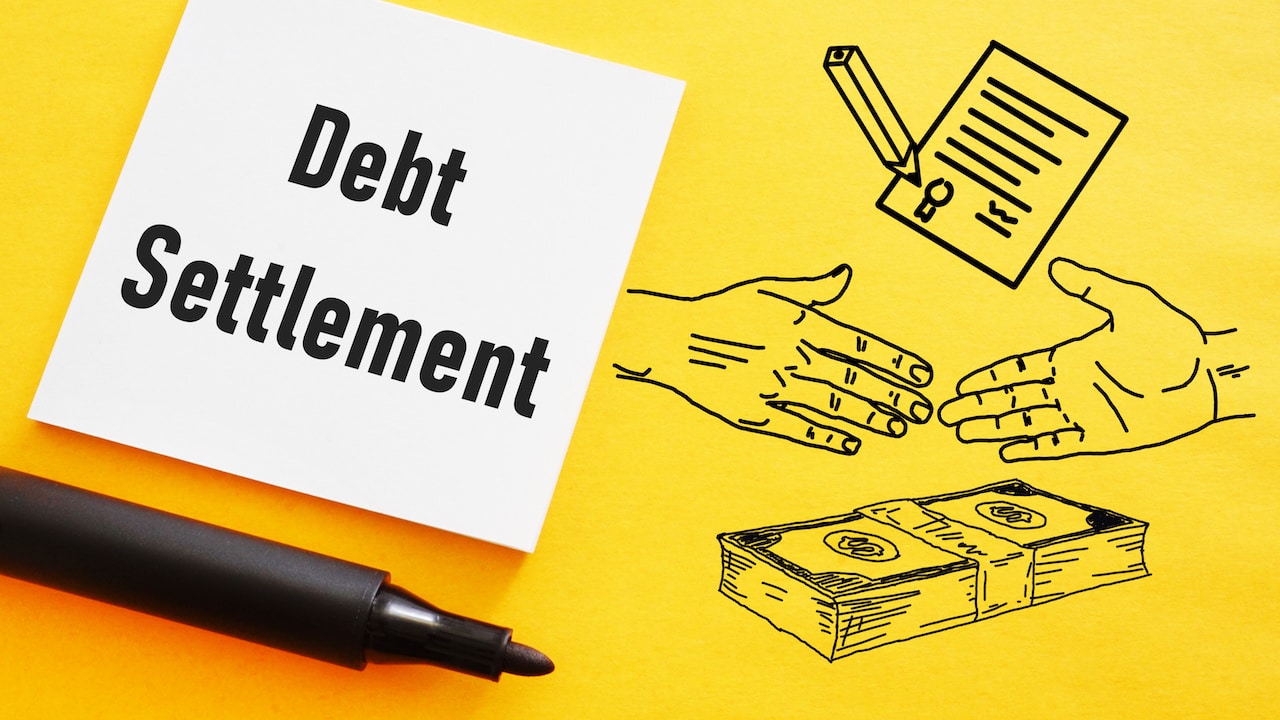

Finance
How Long Does A Debt Settlement Stay On Your Credit Report
Published: October 21, 2023
Learn how long a debt settlement can impact your credit report. Understand the effects on your finance and credit score with our comprehensive guide.
(Many of the links in this article redirect to a specific reviewed product. Your purchase of these products through affiliate links helps to generate commission for LiveWell, at no extra cost. Learn more)
Table of Contents
- Introduction
- Understanding Debt Settlement
- How Credit Reporting Works
- How Long Does a Debt Settlement Stay on Your Credit Report?
- Factors Affecting the Duration of Debt Settlement on Credit Report
- Impact of Debt Settlement on Credit Score
- Pros and Cons of Debt Settlement
- Alternatives to Debt Settlement
- Conclusion
Introduction
Dealing with debt can be a stressful and overwhelming experience. When faced with mounting financial obligations, many individuals turn to debt settlement as a potential solution. Debt settlement, also known as debt negotiation or debt resolution, involves negotiating with creditors to settle your debts for less than what you owe.
While debt settlement can provide some relief by reducing the total amount owed, it also has long-term implications for your credit report. Your credit report is a detailed record of your borrowing history, including information on debt accounts, payment history, and any negative marks such as late payments or collections.
In this article, we will explore how long a debt settlement stays on your credit report. We will also discuss the factors that influence the duration of a debt settlement on your credit report and the impact it can have on your credit score. Additionally, we will examine the pros and cons of debt settlement and provide alternative options that you may consider when facing financial hardship.
It’s important to note that while debt settlement may offer relief in certain situations, it is not a one-size-fits-all solution. Each individual’s financial circumstances are unique, and it’s crucial to fully understand the consequences before embarking on any debt settlement agreement. Let’s delve deeper into the world of debt settlement and how it affects your credit report.
Understanding Debt Settlement
Debt settlement is a debt relief option that involves negotiating with creditors to reach an agreement to settle your debts for less than the full amount owed. This is typically done through a lump sum payment or a structured payment plan. The goal of debt settlement is to provide a more manageable repayment option for individuals who are struggling with their debts.
When you enroll in a debt settlement program, you will typically make monthly payments into a designated account, which is set up by a debt settlement company. These payments are intended to accumulate funds that will be used to negotiate with your creditors. The debt settlement company will then negotiate with your creditors on your behalf to reach a settlement agreement.
It’s important to note that debt settlement is generally only an option for individuals who are experiencing significant financial hardship and are unable to meet their debt obligations. It is not a suitable solution for individuals who are still capable of making their minimum monthly payments.
Debt settlement can be an attractive option for those struggling with high levels of unsecured debt, such as credit card debt or medical bills. By negotiating a lower settlement amount, individuals may be able to alleviate some of the financial burden and work towards becoming debt-free.
However, it’s important to consider the potential drawbacks of debt settlement. It can have a negative impact on your credit report and score, and there may be tax implications for the forgiven portion of your debt. Additionally, not all creditors may be willing to negotiate a settlement, and some debt settlement companies may charge high fees and provide questionable services.
Before considering debt settlement, it’s essential to thoroughly research and understand the process, as well as the potential risks involved. Consulting with a reputable credit counselor or financial advisor is also advisable to assess your financial situation and explore all available options.
How Credit Reporting Works
Credit reporting plays a crucial role in determining an individual’s creditworthiness and financial history. When you borrow money or utilize credit, this information is tracked by credit reporting agencies (also known as credit bureaus) such as Equifax, Experian, and TransUnion. These agencies collect and compile data from various sources to create credit reports.
Your credit report contains various pieces of information that provide a snapshot of your credit history. This includes details on your open and closed credit accounts, the amount of credit you have available, your payment history, and any negative marks such as late payments or accounts in collections.
Creditors, lenders, and financial institutions report your credit history to the credit bureaus on a regular basis. This information helps to assess your creditworthiness when you apply for new credit, such as a loan or a credit card. It also impacts your credit score, which is a numerical representation of your creditworthiness.
When a debt is settled, the creditor will typically report this information to the credit bureaus. The account will be updated to reflect the settlement status, indicating that the debt has been settled for less than the full amount owed. This information is then included in your credit report.
It’s important to understand that credit reporting is governed by certain laws and regulations to ensure accuracy and fairness. The Fair Credit Reporting Act (FCRA) outlines guidelines for credit reporting agencies and how they handle consumer information. Among other provisions, the FCRA states that most negative information, including debt settlements, can stay on your credit report for up to seven years from the date of the first delinquency.
It’s worth noting that credit reporting is not an exact science, and errors can occur. It is essential to regularly review your credit report to ensure the accuracy of the information being reported. You have the right to dispute any inaccurate or incomplete information with the credit bureaus and have it corrected or removed from your report.
Understanding how credit reporting works is crucial in assessing the impact of debt settlement on your credit report. In the next section, we will delve into how long a debt settlement typically stays on your credit report and the factors that can influence its duration.
How Long Does a Debt Settlement Stay on Your Credit Report?
When it comes to debt settlement, one of the common concerns is how long the settlement will stay on your credit report. The duration of a debt settlement on your credit report depends on several factors, including the type of debt, the credit reporting agency’s policies, and any subsequent activity on the account.
Generally, a debt settlement can remain on your credit report for up to seven years from the date of the first delinquency that led to the settlement. This is in accordance with the Fair Credit Reporting Act (FCRA), which governs the handling of consumer credit information by credit reporting agencies.
It’s important to note that the clock starts ticking from the date of the initial delinquency, not from the date of the settlement. So, if you had a debt that became delinquent in 2015 and settled it in 2017, the settlement would be removed from your credit report no later than 2022.
However, it’s worth mentioning that some credit reporting agencies may have different policies regarding the removal of debt settlements. For instance, TransUnion and Equifax typically remove settled accounts from credit reports after seven years, while Experian may remove them after only six years. It’s essential to review your credit report from all three agencies to get a comprehensive understanding of how long the settlement may appear.
It’s important to understand that while the debt settlement itself may be removed from your credit report after the designated time, any negative marks or late payment history associated with the debt may still remain on your report. These negative marks can continue to impact your credit score and overall creditworthiness during that time.
It’s always advisable to monitor your credit report regularly to ensure the accuracy of the information reported. If you notice any discrepancies or errors regarding a settled debt, you have the right to dispute it with the credit reporting agency. The agency must investigate and correct any inaccuracies in a timely manner.
In the next section, we will explore the factors that can influence the duration of a debt settlement on your credit report and discuss how it can impact your credit score.
Factors Affecting the Duration of Debt Settlement on Credit Report
While the Fair Credit Reporting Act (FCRA) sets a general guideline for how long a debt settlement can stay on your credit report, there are several factors that can influence the duration. These factors include the reporting policies of credit bureaus, the type of debt, and any subsequent activity on the account.
1. Credit Bureau Reporting Policies: Each credit reporting agency, such as Equifax, Experian, and TransUnion, may have slightly different policies regarding the duration of debt settlements on credit reports. While most agencies adhere to the seven-year limit mandated by the FCRA, some may choose to remove settled accounts after a shorter period, such as six years. It’s important to review your credit report from all three agencies to get a clear understanding of how long the settlement will be reported.
2. Type of Debt: The type of debt being settled can also impact how long it stays on your credit report. Generally, unsecured debts like credit card debt or medical bills are more likely to be eligible for settlement. Secured debts, such as mortgages or car loans, may not be as easily settled. The reporting duration of settled debts may vary depending on the type of debt and the individual policies of the credit reporting agencies.
3. Subsequent Account Activity: Any subsequent activity on the settled account can affect the duration of the settlement on your credit report. If you make payments or engage in any new activity on the settled account, it can reset the clock for how long the settlement remains on your report. It’s crucial to understand the impact of any new activity on the settlement duration and consult with professionals or credit counseling agencies before making any decisions.
4. State Statutes of Limitations: Each state has its own statutes of limitations for different types of debts. These statutes determine the time period within which a creditor can legally pursue collection actions for the debt. The statutes of limitations may be shorter or longer than the reporting duration of settled debts. It’s important to be aware of the statutes of limitations in your state to understand how they may intersect with the duration of a debt settlement on your credit report.
It’s important to note that while the duration of a debt settlement on your credit report is significant, the impact on your credit score may be felt more immediately. Even after the settlement is no longer reported, the negative marks associated with the debt, such as late payments or collections, can continue to affect your credit score during the reporting period.
Understanding the factors that influence the duration of a debt settlement on your credit report can help you make informed decisions and navigate the credit landscape effectively. In the next section, we will examine the impact of debt settlement on your credit score and discuss ways to mitigate its effects.
Impact of Debt Settlement on Credit Score
Debt settlement can have a significant impact on your credit score. When you settle a debt for less than the full amount owed, it may result in negative consequences for your creditworthiness.
One of the major factors affecting your credit score is your payment history, which accounts for approximately 35% of your FICO score. Late payments, collections, and settlements can all have a negative impact on this aspect of your credit score.
When you settle a debt, it typically means that you were unable to fully repay the amount owed. As a result, your credit score may be negatively affected, as creditors and lenders interpret this settlement as an indication that you may be a higher credit risk. This can make it more difficult for you to obtain new credit or loans in the future.
In addition to the impact on your payment history, debt settlement can also affect other components of your credit score. For example:
- Amounts Owed: Debt settlement may lead to a lower credit utilization ratio, which is the percentage of your available credit that you are currently using. A higher credit utilization ratio can negatively impact your credit score. However, settling a debt can lower this ratio, potentially improving your credit utilization and positively impacting your score.
- Length of Credit History: Debt settlements remain on your credit report for several years, which can contribute to a shorter credit history. Length of credit history accounts for about 15% of your credit score, so a shorter credit history may result in a lower score.
- Types of Credit: Having a mix of different types of credit, such as credit cards, loans, and mortgages, can positively impact your credit score. Debt settlement may not directly affect this component, but it can indirectly impact the types of credit you are able to obtain in the future if creditors view you as a higher credit risk.
- New Credit Applications: When you settle a debt, it may temporarily impact your ability to obtain new credit. This is because potential lenders may see the debt settlement on your credit report and consider it as a risk factor when evaluating your creditworthiness.
It’s important to keep in mind that the extent of the impact on your credit score will depend on your overall credit history and the specific circumstances surrounding the debt settlement. For some individuals, the negative impact may be minimal, while for others, it may be more significant.
If you’re considering debt settlement, it’s important to weigh the potential impact on your credit score against the potential benefits of repaying your debts. Understanding the long-term consequences can help you make an informed decision.
Next, we will explore the pros and cons of debt settlement as a debt relief option.
Pros and Cons of Debt Settlement
Debt settlement can be a viable option for individuals facing overwhelming debt, but it’s important to consider the pros and cons before making a decision. Let’s explore some of the advantages and disadvantages of debt settlement.
Pros:
- Reduced Debt Amount: One of the most significant advantages of debt settlement is the potential to reduce the total amount owed. By negotiating with creditors, you may be able to settle your debts for a portion of what you originally owed, providing some financial relief.
- Positive Impact on Cash Flow: Debt settlement can help improve your cash flow by reducing your monthly debt payments. With a lower overall debt burden, you’ll have more disposable income to meet other essential financial obligations.
- Relief from Collection Activities: When you settle a debt, it typically halts collection activities from creditors or collection agencies. This can bring a sense of relief and alleviate the stress associated with constant collection calls and letters.
- Faster Debt Repayment: Debt settlement offers the chance to expedite your journey towards debt repayment. Instead of making minimum monthly payments that may take years to clear your debts, settling enables you to resolve your debts in a shorter timeframe.
Cons:
- Negative Impact on Credit Score: Debt settlement can have a detrimental effect on your credit score. Settled accounts may remain on your credit report for up to seven years, and the settlement itself may be seen as a negative mark by potential lenders, potentially making it more challenging to access credit in the future.
- Possible Tax Implications: The IRS considers forgiven debt as taxable income. If you settle a debt, you may be required to report the forgiven amount as income on your taxes. It’s essential to consult with a tax professional to understand the implications and potential tax obligations.
- Potential for Scams: Not all debt settlement companies operate ethically or provide reliable services. Some companies may charge excessive fees or fail to deliver on their promises. It’s crucial to thoroughly research and select a reputable and trustworthy debt settlement company if you decide to pursue this option.
- Incomplete Debt Resolution: Debt settlement does not address all types of debt. Secured debts, such as mortgages or car loans, may not be eligible for settlement. Additionally, not all creditors may be willing to negotiate a settlement, leaving you with unresolved debts.
It’s important to carefully weigh these pros and cons in light of your specific financial situation before deciding if debt settlement is the right option for you. Seeking guidance from a reputable credit counselor or financial advisor can also provide valuable insight to help you make an informed decision.
Next, we will explore alternative options to debt settlement that you can consider when facing financial hardship.
Alternatives to Debt Settlement
While debt settlement can be an option for resolving your debts, it’s important to consider alternative solutions that may be better suited to your financial situation. Here are a few alternatives to debt settlement that you can explore:
1. Debt Management Plan (DMP):
A debt management plan involves working with a credit counseling agency to create a structured repayment plan for your debts. The agency negotiates with your creditors to potentially reduce interest rates, waive fees, or establish a more feasible payment schedule. With a DMP, you make a single monthly payment to the counseling agency, which then distributes payments to your creditors on your behalf.
2. Debt Consolidation:
Debt consolidation involves combining multiple debts into a single loan or line of credit. This can simplify repayment by consolidating several payments into one, potentially at a lower interest rate. Debt consolidation can be achieved through a personal loan, balance transfer credit card, or home equity loan, depending on your eligibility and the amount of debt you need to consolidate.
3. Credit Counseling:
Working with a credit counseling agency can provide guidance and strategies for managing your debts. Credit counselors can help you create a budget, negotiate with creditors on your behalf, and provide educational resources to improve your financial literacy. They can also assist in setting up repayment plans and finding appropriate alternatives to debt settlement.
4. Bankruptcy:
Bankruptcy should be considered as a last resort, as it has long-term financial implications. However, for individuals facing overwhelming debts with no feasible alternatives, bankruptcy can provide a fresh start. Consult with a bankruptcy attorney to assess your eligibility and explore the different types of bankruptcy, such as Chapter 7 or Chapter 13, to determine the most suitable option for your circumstances.
5. Negotiating with Creditors:
Before considering debt settlement, it’s worth attempting to negotiate directly with your creditors. They may be willing to offer repayment plans, reduced interest rates, or even debt forgiveness in certain situations. Communicating openly and honestly about your financial difficulties may lead to more favorable terms for repayment.
Each alternative has its own advantages and considerations, so it’s essential to evaluate your financial situation carefully and seek guidance from professionals to determine the most suitable option for you.
Next, we will conclude with a summary of the key points discussed.
Conclusion
Dealing with debt can be overwhelming, and debt settlement often emerges as a potential solution. However, before pursuing debt settlement or any other debt resolution option, it’s crucial to be well-informed about the implications and available alternatives.
In this article, we explored the duration of debt settlement on your credit report, which can typically stay for up to seven years from the date of the first delinquency. We discussed factors such as the type of debt, credit bureau reporting policies, subsequent account activity, and state statutes of limitations that can affect the duration of debt settlement on your credit report.
We also examined the impact of debt settlement on your credit score, including potential negative effects on your payment history, credit utilization ratio, length of credit history, and new credit applications. It’s important to understand that while debt settlement can provide relief in terms of reducing debt amounts and improving cash flow, it can also have lasting implications for your creditworthiness.
Additionally, we discussed the pros and cons of debt settlement, highlighting advantages such as reduced debt amounts and relief from collection activities, as well as disadvantages such as potential harm to your credit score, tax implications, the possibility of scams, and incomplete debt resolution. Understanding these factors is crucial in making an informed decision about the suitability of debt settlement for your financial situation.
To ensure you explore all available options, we discussed feasible alternatives to debt settlement, including debt management plans, debt consolidation, credit counseling, negotiating with creditors, and bankruptcy. Each alternative comes with its own considerations and advantages, so it’s crucial to evaluate them based on your specific circumstances.
In conclusion, when facing overwhelming debt, it’s essential to thoroughly research and consider all available options before committing to debt settlement. Consult with credit counselors, financial advisors, and reputable professionals to assess your situation and determine the most suitable path towards resolving your debts while minimizing the impact on your credit and long-term financial well-being.

